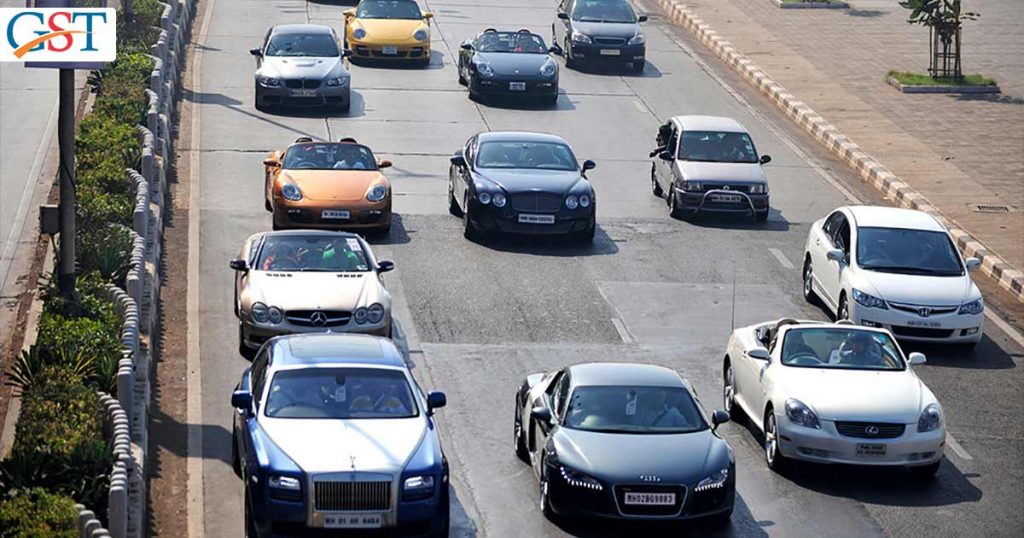
Increment in the GST rate on luxury cars to 25% led to the agitation among the luxury carmakers. The cold sweat scenario has now reached the crest and other carmakers are also joining the behest made by Rohit Suri who is the head of Jaguar Land Rover, India about discarding luxury cars as ‘sin goods’ and curtailing GST rate on it.
Other luxury car manufacturers including the C.E.O of Mercedes-Benz and Head of Audi, are also seeking reconsideration and revision of GST rates on all passenger vehicles with measurement more than four metres, from the budget committee.
Mercedes-Benz is demanding the abbreviation of GST rates on luxury cars so that the growth chances of luxury carmakers can be germinated. Additionally, the C.E.O of the company laid emphasis on giving depreciation benefits to the customers.
Martin Schwenk, MD & CEO, Mercedes-Benz India commented, “Given the favourable outcome of GST in terms of rising revenue, we wish the Government would reconsider the rationalization of GST rates for cars which currently attracts 28 per cent GST and 17 per cent – 22 per cent Compensation Cess. We recommend a downward revision of GST rate on all cars to 18 per cent from 28 per cent and a proportionate reduction of CESS to around 15 per cent for all cars above 4 meters. This will act as a much-needed catalyst for the growth of the industry, especially when it is facing subdued customer interest due to multiple factors like rising in insurance costs, inflationary hikes, liquidity crunch and forthcoming price increase due to BSVI implementation. To revive the slowing down auto sector, we also recommend considering offering ‘depreciation’ benefit on vehicles to individuals.”
Read Also: GST Impact on Selling and Buying Used Cars
Audi is also looking for the moderation of GST rate as it has a major impact on the sales and product & investment planning.
Rahil Ansari, Head- Audi India said, “The taxes on cars have a huge impact on the customer’s buying decision whether it is an affordable or a luxury car. Moderations in taxes are much needed as this will lead to more volumes and in turn create larger tax revenues for the government in the long run, making it a win-win situation. Of course, this has to go hand in hand with a consistent tax structure for the next five years, which will give us a good perspective to plan our products and investments effectively.”
The proportion of luxury cars in the total Indian auto market is just over 1 per cent and that 1 per cent is facing a stagnant phase as it has become even more complicated for the carmakers to boost the sales because of the increased rate.
If the appeal of carmakers regarding GST rate reduction is accepted by the administration then it would lead to better return-on-investment (ROI) by transforming the current market into money-making and advantageous for the world-class car manufacturers.
In this way, the Indian market will become a fruition place with promising ROI for luxury car manufacturers to introduce the latest innovation and cutting-edge technologies.









